Ties to the Land
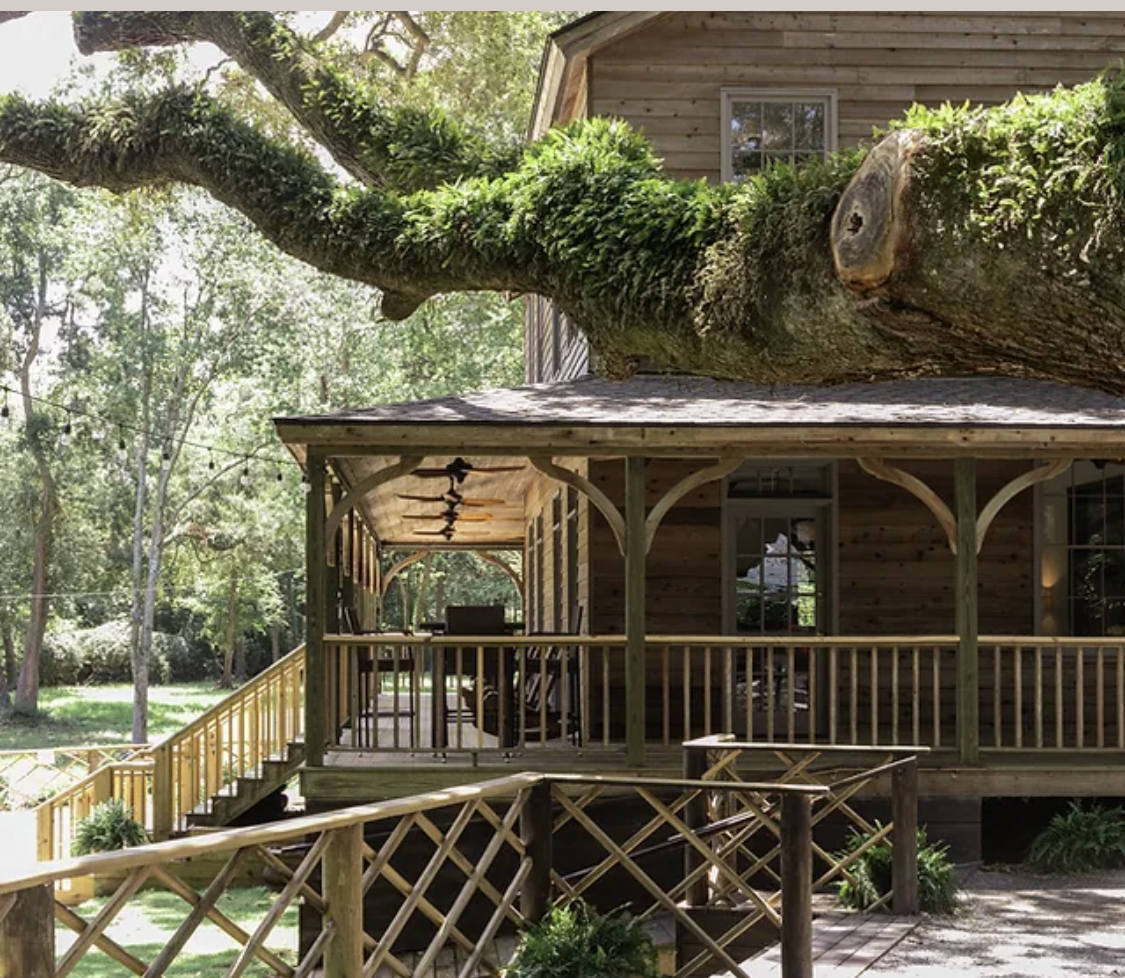
“Where culture is most abundant, resources are most limited.The Sea Islands are an excellent example. Prior to the construction of bridges, resorts, and subdivisions, Geechee folk on the Georgia and South Carolina Sea Islands were insulated from the mainland. They lived (and still do) in kundas—a Geechee word for family compounds—with a language and lifestyle that closely resembled our cousins in West Africa. But many ain’t get electricity or telephone lines until the 1970s. Later than that for some.”
That’s why so many of us, as young folk especially, “crossed the tracks” or, in the case of the sea islands, “crossed the bridge.” To bigger cities and “bigger bags.” With our moving on up, we expected a more comfortable, more impressive lifestyle. Some of us got it. Others didn’t. But what we all got was shamed. For where we come from, how we talk, think, dress and eat.
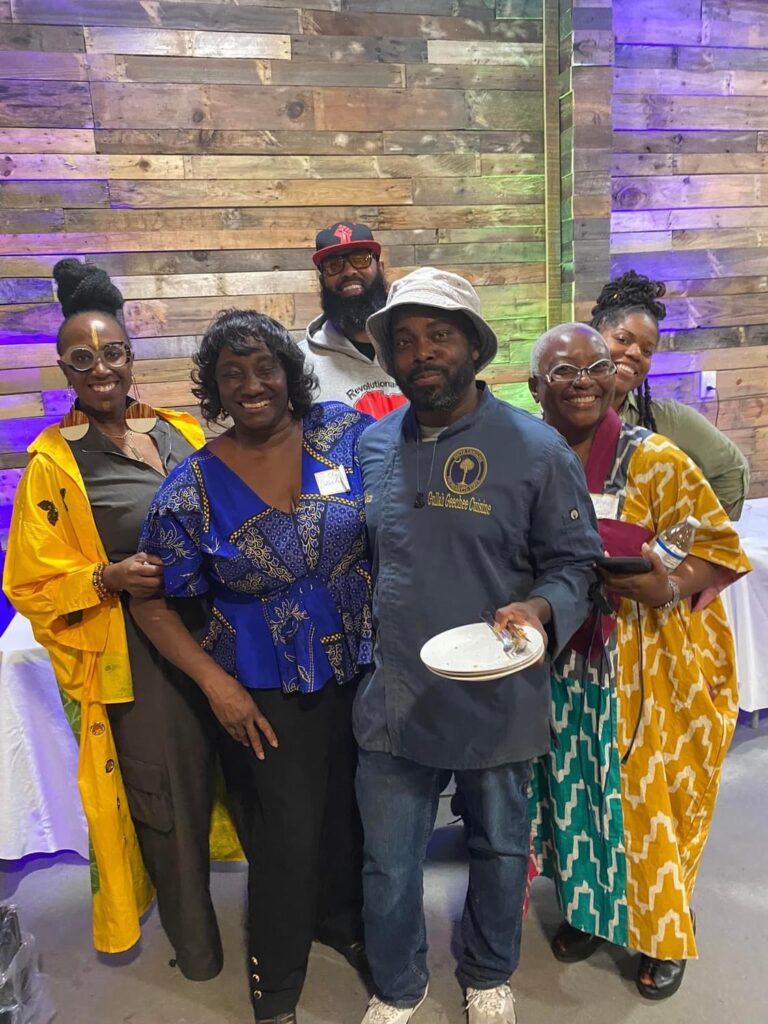
So, like Haagar from Daughters of the Dust, we do our best to “wash the Geechee stain from ourselves and our children.” To rid ourselves of “de look of de saltwater Negro” and “dem old ignorant ways” and to find “de better way of living.” But what we ended up finding, as I shared in my TedX talk, was “more money and access but an absence of our own aesthetic, artistic and emotional center.”
In her novel, 1996, Gloria Naylor wrote—and I’m shortening it: “The Gullah are a regal people, who are trying to hang on to their culture as their young cross the bridges to resettle around the United States. The young people leave and the developers come. They are drawn by the warm winters, the live oaks dripping with Spanish moss, the palmettos fringing the salt marshes that extend for miles, weaving in and out of strips of land that lie below a blue and welcoming sky. You feel more like you’re in the Caribbean than in America. There is a stillness about the place.
Most people have heard of Hilton Head, where the palm trees have been cultivated to stand in straight lines like soldiers. Shopping malls abound, and the white sandy beaches are hidden from view by concrete highways. A paved, 2-lane highway also runs through St. Helena, but, You feel that people live on St. Helena, not just tour it.
I decided that if I made any money from the current novel, I would mortgage my life to the bank and buy a retirement home. I kept that promise, and in 1988 found a little black and white Victorian cottage on two acres of land. The down payment emptied my savings account, but I didn’t care. The property was my own little Eden.”
Gloria Naylor had experienced exactly what Sara Daise said: The South is a Portal.
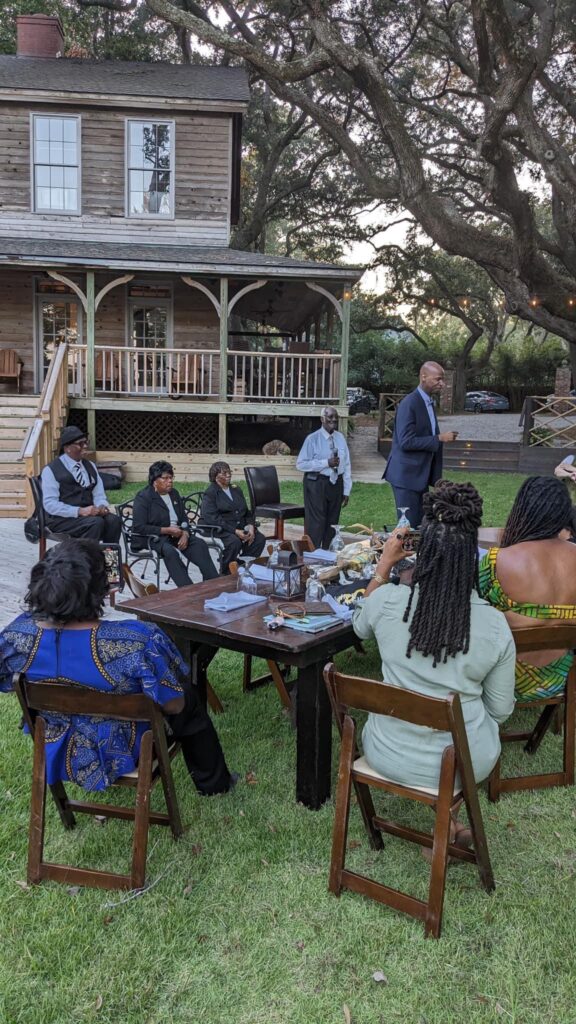
I was born in Monroe, Louisiana, in 1988, the same year that Gloria bought her St. Helena home. Like many black folks, I was partially raised by my grandmother, my hoodoo, white-gloved, Usher boarding Antioch Baptist Grandmother in the home that she, along with my Free Mason slash Baptist Deacon grandfather, paid off a lil before I was born. My Army mama settled in Savannah in ’91. My welding father in New Orleans. I grew up between the two.
I gained what Zora Neale Hurston called “the spyglass of anthropology” at a very young age because of all my travels. Whereas most people, as Zora explained, can’t see the clothes they got on for wearing ‘em, my three eyes have always been attuned to the rhythm of a place. To the people and how they eat, dress, talk, entertain, and even divide themselves. I was a high schooler telling my friends in New Orleans and in Savannah how similar the two cities are: in landscape and culture.
Like many of my peers though, I couldn’t wait to grow up and move away. It seemed that all I could see around me were reasons to leave. The storm (aka Hurricane Katrina), however, reminded me of all that I’d overlooked and was taking for granted. I eventually went back, but where we were originally was no longer financially feasible.
It dawned on me one day that my first childhood home in Savannah was no longer accessible either. It, too, had flooded out and was demolished by the city. Then that reminded me that the same thing had happened to my grandmother’s home after her passing. It was deemed unlivable then demolished. It was more than just a house though, more than a container of sacred smells and memories. Because following its demolition, it seemed my grandmother’s seven children couldn’t find their way back to each other. There was no base.
In Sarah Broom’s memoir, The Yellow House, referring to the East New Orleans home she was raised in, she discussed the benefits of having a base. She wrote, “My siblings were all grown, most of them married, returning to the Yellow House for visits and for the lows, the in-between times natural to every life.” Like me, it wasn’t ’til Sarah’s childhood home had been washed away that the reality sank in. Despite all the years of shame she carried behind that yellow house, it played a vital role for her family.
Charlemagne, a radio host and South Carolina native, expounded on the benefit of a base in a way that made me wish I had it. When he’s feeling overwhelmed or conflicted, he goes back to his childhood home in Moncks Corner to recenter and regroup. And it’s always exactly what he needs.
Khetnu Nefer, founder of the Gullah Geechee Herbal Gathering, which is this weekend, shared the same sentiment. Originally from John’s Island, she now lives in DC. But when she needs some grounding, she knows exactly where to go: home. To the land that’s been in her family for four generations. And circling back to the Herbal Gathering, that family land is exactly where she facilitates the gathering of more than 100 people every year. She’s able to organize, create community, and generate profit right there on that land. The first time I set feet on her family’s land, I remembered being told that South Carolina had more black land owners than any other state in the country, most of it being heirs property. And that almost all of it was being threatened.
Sure nuff, when I called Khetnu up to confirm her family facts, she said “We’ve lost a lot of our land, unfortunately.”
I ain’t making out to say that the south is better than the north or country better than city. The emphasis is on home and our access to it, home as in where we come from directly as well as where our elders and ancestors come from. We deserve to be able to cross the bridge as we please, coming back for a second to quiet our minds and settle our spirits, or even moving back. Because our ties to the land ain’t just historical or strictly about reverence. There’s a present-tense, physical, mental, spiritual, emotional, and financial benefit to having land to return to, whether to live or visit.
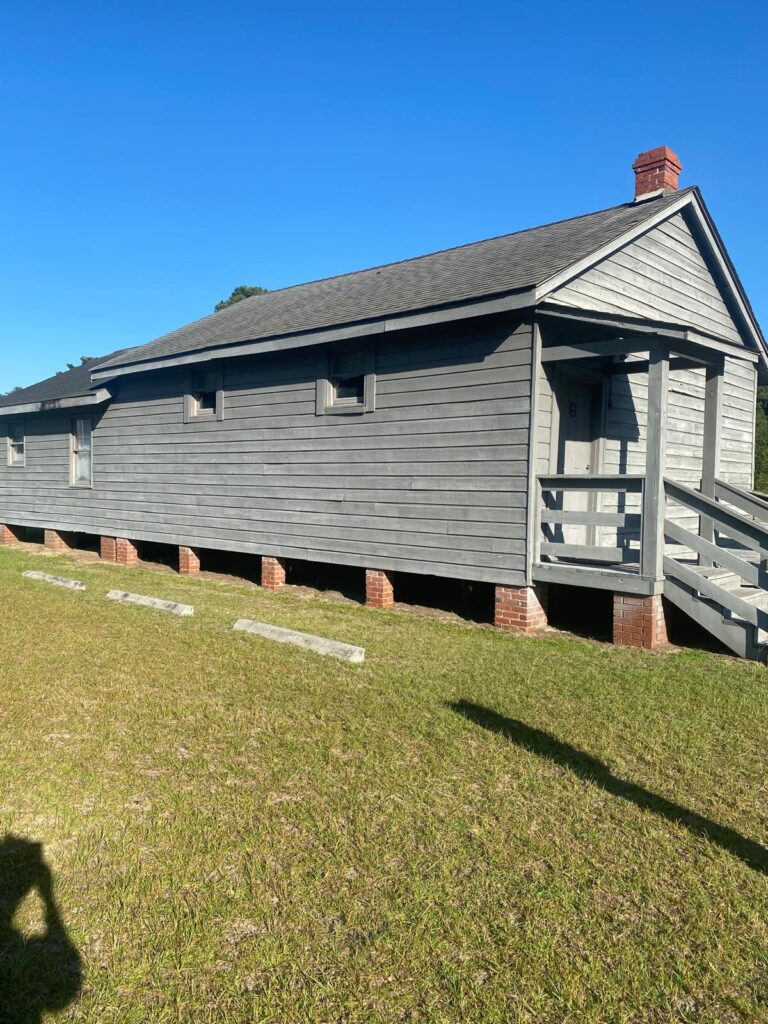
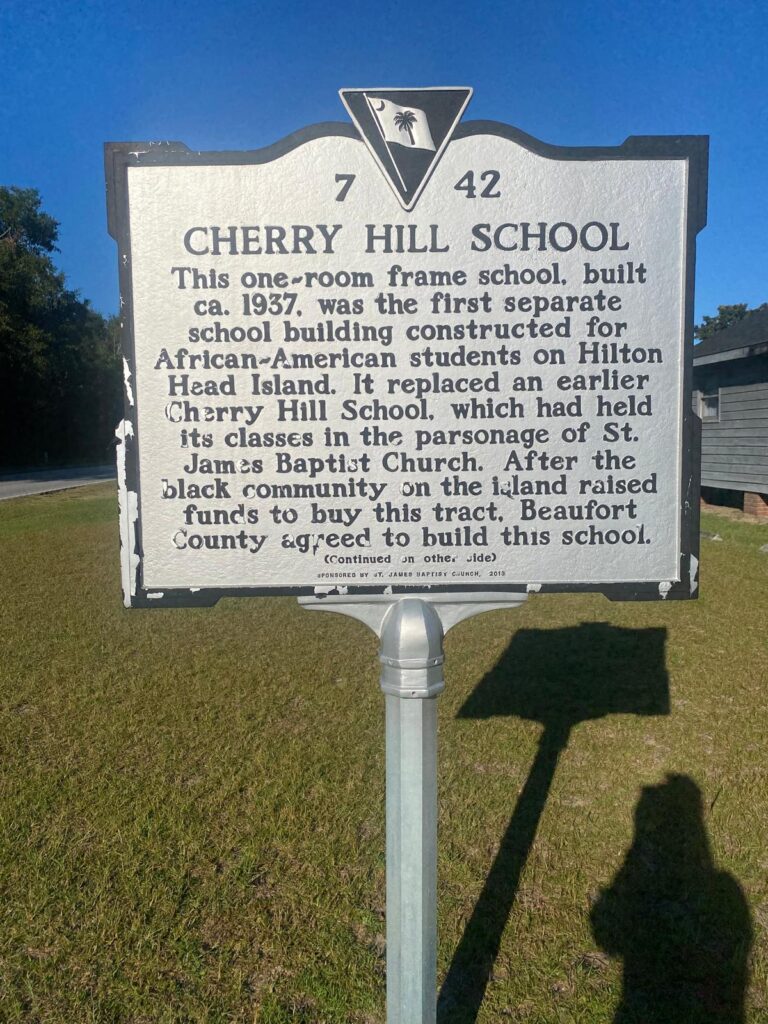
I’m also not tryna tell anybody what to do. I understand the enormity and the continuity of the problem of displacement. Mrs. Josephine Wright, right here on Hilton Head, has been in her house for 30 years and her family’s home has been on this land since the Civil War. That reminded me of the Singleton family, who, after Emancipation, bought a lil land at a time ’til they’d acquired over 200 acres of beachfront property right here on Hilton Head. Developers wanted ‘em gone and eventually got their way. Mrs. Josephine Wright is fighting lawmakers and millionaires, maybe even billionaires, to win a war that the Singletons and so many others did not. When big bank want you gone, it seems, they’ll find a way.
But we faith our way through the storms. We always have. We organize, we pray, pass the offering plate, sing and dance, vote, color our walls and ceilings haint blue, dust off our bottle trees, sprinkle salt, fight, rebel, resist, and, if necessary, we rebuild. I have a saying that “We All Cousins.” It was the title of my TedX Talk too, in case you wanna watch it. It just means that wherever we go in this world, we’ll find a level of sameness. We’ll see elements of our Geechee or Creole culture. And just as we share many of the same celebrations, we also share struggles.
Disconnection is the primary shared struggle. Disconnection from ourselves, our people, our culture, and our land. So part of my work is reminding my cousins all over the displaced and disconnected diaspora of the fact that we have always resisted. Whether the Gullah Corridor, the Gulf, the first self-incorporated black town of Eatonville or the first self-governed town of freed black folk here in Mitchelville. The Caribbean and South America too.
Resistance is in our blood. Wherever the storms carry us, we need only peel back the plaster and we’ll find that blue paint. Just like they did at the Owens Thomas House. Or just like how my grandmama’s land been claimed, but I can still reach out and touch that magnolia tree. We just gotta make sure that we Krak Teet and tell our stories so the chi’ren know where to reconnect and how to find they peace of mind. And if you think they ain’t interested in learning, ask me how I do it a lil later. Through my summer camp, I sit almost 20 middle schoolers down with elders they don’t even know with an audio recorder between ‘em, and together they make magic.
My final thoughts on this 4th day of Hoodoo Heritage Month and GG Heritage Month… are questions that New Orleans author, Sarah M. Broom asked:
“Who has the rights to the story of a place? Are these rights earned, bought, fought and died for? Or are they given? Are they automatic, like an assumption? Self-renewing? Are these rights a token of citizenship belonging to those who stay in the place or to those who leave and come back to it? Does the act of leaving relinquish one’s rights to the story of a place? Who stays gone? Who can afford to return?”
—
[This was a speech that Trelani Michelle delivered at a Mellon Foundation event at Mitchelville Place in Hilton Head, South Carolina on October 4, 2023.]

